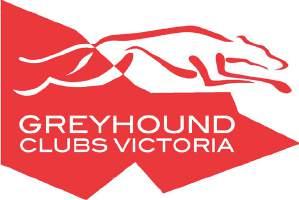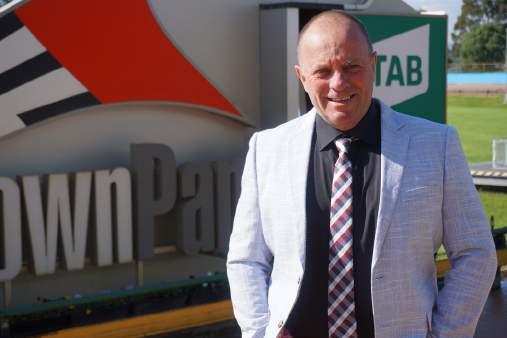
7 minute read
FIVE FREEDOMS AND GREYHOUND RACING

Sandown Park Greyhound Racing Club

Manager Profile: Adrian Scott
Adrian was born in Mirboo North in Gippsland where he lived until late primary school years, when he, his parents and four sisters moved to Boronia. On completion of secondary school Adrian decided to join Victoria Police Force, commencing in the Police Academy in June 1979. He remained in the force for 20 years, working both in metropolitan and country areas. In 2000, he purchased an agricultural business in west Gippsland dealing in which he ran for about 6 years. After selling the business he was employed by a major Australian seed company as a Regional Business Manager for Tasmania and Gippsland.In 2014 he was appointed Manager of the Warragul Greyhound Racing Club where he worked until March 2020, when he then took over the position of CEO at Sandown. Throughout his time in the greyhound industry Adrian has been passionate about the advancement of the 13 greyhound Clubs. He was instrumental in the formation of Greyhound Clubs Victoria, becoming the inaugural Chairman. He has worked exceptionally hard in the last 3 years to ensure Greyhound Clubs Victoria has a strong voice and works collaboratively with GRV to enhance the performance of the 13 clubs. Residing in a small country town has seen Adrian develop a very strong community spirit. He’s a Life Member and former President of the Nar Nar Goon Football Club as well as being a founding Board member of the recently reformed West Gippsland Football Netball competition. This has kept Adrian in close contact with the ‘grass roots’ sport. Adrian and his wife Christine have a new addition to the household, Shadow - a retired racing greyhound - who has made himself completely at home in the paddocks and house.Keep up the great work Adrian

Fun Fact - with Neil Brown
There have been three standouts to race at the three MGRA venues. Starting at North Melbourne,a tricky oval circuit which observers from that era state without contradiction that champion chaser Rookie Rebel was almost unbeatable. He won on many occasions including an outstanding win in the 1957 Australian Cup. He was a great railer and North Melbourne suited his style of racing, but as the late George Schofield said of the best dog he ever saw race “Rookie had track sense like no other. He would look above the other dogs for the best passage.” Rookie Rebel 67 starts for 36 wins and 23 placings. At Olympic Park there were many outstanding dogs one favourite was Striding Ahead, but there was none better than Temlee, he raced on 37 occasions for 25 wins. He was the undisputed ‘King of Olympic Park’. He won 13 races from 19 starts on Swan Street’s No. 2 Oval – including the 1974 National Sprint Championship, 1974 Maturity and a 29.67sec track record in 1974, a mark that stood for 10 years. Another mad railer, he was never beaten from box one. Unfortunately, Temlee’s race career came to an abrupt halt when he cracked a bone in his left hind leg at Olympic Park. However, he became arguably the best stud dog of all time. Some of his early champions he produced included Satan’s Legend, Tempix, Tangaloa, Chief Dingaan, World Acclaim and Roy Trease. At Meadows again we have seen superstars win many features over the past 20 years but for sheer versatility there has been none better that Fanta Bale. The daughter of David Bale and Ucme Typhoon retired with a record $1,365,175 in prize money. She won 42 of her 63 career starts, contesting 22 group finals, winning 13 including a record nine group 1’s. The Queen of the Meadows won five of those group 1 finals on her favourite track. The 2016 Hume Cup (600m), 2017 Rookie Rebel (600m), 2017 Australian Cup (525m), 2018 Zoom Top (725m) and 2018 Super Stayers (725m). Overall, she raced at the Meadows 12 times for 10 wins and one placing. Three immortal stars that shone over 60 years. For the full history read more - https://gcv.org.au/locations/sandown
Gastroenteritis and Appropriate Use of Antibiotics –GRV Veterinary Services
Diarrhoea in greyhounds:
Earlier in the year, the greyhound industry was significantly impacted by a nationwide outbreak of gastroenteritis caused by the gut (enteric) form of canine coronavirus (no relation to COVID-19 and cannot be spread to humans). In most cases it caused a self-resolving mild gastrointestinal illness (vomiting, diarrhoea, poor appetite), but some trainers reported a reduction in performance that lasted several weeks. The disease had implications for greyhound health and welfare and impacted the racing population with participants unable to race their greyhounds. Just like the ongoing COVID-19 pandemic in humans, testing is an important part of any outbreak control strategy. Many greyhounds had their faeces sampled and tested for different infectious agents that identified the cause of disease, rather than guessing and providing unnecessary treatments.
Causes of Diarrhoea:
While infection may often be thought of as a primary cause, there are many different reasons a greyhound can develop diarrhoea, including dietary indiscretion, a change in diet, ingestion of spoilt food or a toxin, food sensitivity or irritable bowel, stress, or as a side-effect of certain medications. In most cases, including those of infectious diarrhoea, routine antibiotic treatment is not required. Whenever there are multiple greyhounds affected on the same property, or that have been in contact with others affected by a gastrointestinal illness, it is reasonable to suspect an infectious cause. Infections may be from a virus, bacteria or parasite. Studies have shown that dogs carry many different infectious agents in their gastrointestinal tract, so it can often be difficult to distinguish which one is responsible for causing the observed illness. Many greyhounds will test positive for Campylobacter and Salmonella on faecal samples. These bacteria do not always cause illness, and antibiotic treatment will only be required in exceptional circumstances. They can however be spread between greyhounds or though ingestion of and contact with raw meat. They have the potential to also infect humans. Viruses, including parvovirus and coronavirus, are not normally found in the gastrointestinal tract of greyhounds and cannot be killed by antibiotics. In some cases, your vet may prescribe antibiotics to treat a secondary bacterial infection, especially if there is a secondary overgrowth of resident bacteria or more severe symptoms are present. Giardia is a parasite and is usually transmitted via contact with faeces or through faecal contaminated water. Your vet will be able to diagnose infection from a faecal sample and provide treatment recommendations. World Antimicrobial Awareness Week was 18-24 November and antibiotic resistance is important for us all to be aware of. Antibiotics are substances used to kill bacteria or to stop them from growing and multiplying. Antibiotic resistance is defined as the ability of a bacteria to resist the action of antibiotics. This means bacterial replication will not be inhibited or the bacteria will not be killed. It is easy to think that if you are giving antibiotics to a greyhound with diarrhoea that it was the medication that led to an improvement; actually, diarrhoea will resolve on its own within two or three days in most cases. Using antibiotics inappropriately may not harm the greyhound but increases the risk that antibiotic resistance develops. This is because antibiotics will only kill the bacteria that are sensitive to the drug; the resistant bacteria are the ones that can survive and multiply. Antibiotic-resistant bacteria occurring in animals can spread between animals and to humans, which may lead to infections that are difficult to treat. As an example, a recent case of severe pneumonia in a greyhound, cultured bacteria that were resistant to lincomycin, which has been commonly used in greyhounds for many decades. It is therefore extremely important that antibiotics are used prudently and only under the direction of your veterinarian, which includes using them at the dosage and duration prescribed. Antibiotics should only be used where necessary and the correct antibiotic to treat the likely or known infection should be selected by your veterinarian (which may require culture and sensitivity testing). Correct use of antibiotics will mean that in the future we are able to continue to improve animal welfare by treating and preventing bacterial infection and, also, to ensure that human medicine continues to have antibiotics that work.
Note: If you have old / expired, non-prescribed, or left-over personal antibiotics in your kennels, you should discard them appropriately, along with any other prohibited substances not possessed in accordance with the Rules.
For more information on: Infectious gastroenteritis: https://fasttrack.blob.core.windows. net/fasttrackpublic/stewardsHearing/2020/infectious%20 gastroenteritis%20faq%20final%2028.02.2039180f94-77ad4aff-841e-befc552c4c53.pdf Antibiotic resistance: https://www.healthdirect.gov.au/ antibiotic-resistance








